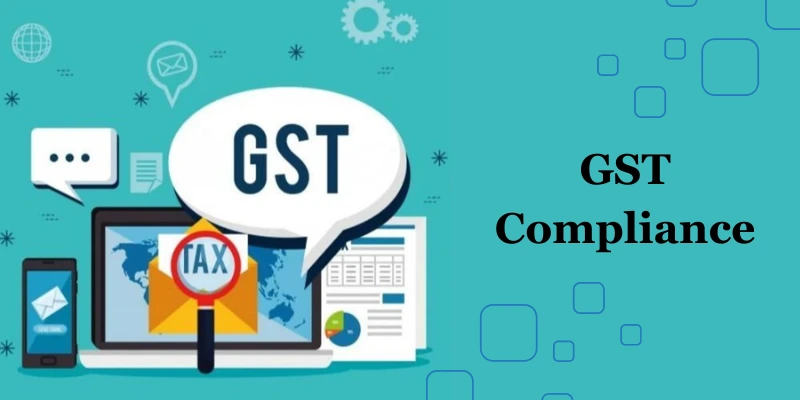If you run a business in India, you already know that GST compliance can feel a little overwhelming especially when rules keep changing and deadlines seem to sneak up out of nowhere. Many companies, even well-established ones, fall into avoidable traps simply because GST looks more complicated than it actually is. That’s why understanding the most common mistakes can save you from penalties, unwanted notices, and unnecessary stress. Learning GST with guidance from a reliable source like FITA Academy gives you much more clarity on how to stay compliant, but even then, staying updated is key.
Let’s walk through the biggest GST mistakes businesses make and how you can avoid them with simple explanations and practical tips you can use instantly.
1. Delaying GST Return Filing
One of the most frequent compliance errors is late filing. Many businesses miss monthly or quarterly deadlines because they’re busy, short-staffed, or confused about the filing frequency.
But in GST, delayed filing doesn’t just stop with late fees it blocks your ability to claim ITC (Input Tax Credit). Once your ITC is impacted, your cash flow gets restricted too.
How to avoid it:
- Maintain a fixed GST calendar
- Automate reminders
- Use accounting tools or hire a professional
Staying punctual saves money. Simple as that.
2. Incorrect or Incomplete Invoices
Improper invoicing is a silent killer in GST compliance. A missing HSN code, incorrect GSTIN, or mismatched totals may seem small, but they lead to rejection of returns or ITC claims.
Businesses often realize these mistakes only when reconciling data at the end of the month.
How to avoid it:
- Keep a standardized invoice format
- Ensure HSN/SAC codes are updated
- Use billing software that auto-validates data
Even better, consider upgrading your accounting skills through a recognized Tally Course in Chennai so you can build invoices the right way from Day 1.
3. Forgetting to Reconcile GSTR-2B and Purchase Records
Reconciliation is a word most business owners dread, but it's one of the biggest causes of GST mismatches. If your vendor forgets to file or enters incorrect data, your ITC gets blocked.
Why this happens:
- Vendors delay filing
- Purchase entries are recorded incorrectly
- Goods receipt and invoice date mismatch
How to avoid it:
- Reconcile monthly (not yearly)
- Follow up with vendors who delay uploads
- Use automated reconciliation tools
Keeping your books aligned with GSTR-2B ensures your eligible credits stay safe.
4. Misclassifying Goods and Services
Many businesses still struggle to identify the correct HSN or SAC codes. Even a minor misclassification can trigger unnecessary scrutiny or lead to underpayment/overpayment of tax.
For example, a bakery selling packaged goods vs. freshly baked items might fall under different GST slabs.
How to avoid it:
- Refer to the latest GST rate schedule
- Seek guidance from tax professionals
- Verify code changes every financial year
If you’re trying to build a solid understanding of classification, a structured GST Course In Chennai can help you grasp these concepts clearly, especially with hands-on practical sessions.
5. Not Maintaining Proper Documentation
Documentation is the backbone of GST compliance. Whether it’s invoices, credit notes, delivery challans, or e-way bills, everything needs to be stored systematically.
Problems caused by bad documentation:
- ITC denial
- Difficulties during audits
- Mistakes in return filing
How to avoid it:
- Keep soft and hard copies
- Use cloud-based storage
- Implement document numbering systems
Good documentation = smooth audits + peace of mind.
6. Ignoring E-Way Bill Regulations
Many businesses assume e-way bills are only for interstate transactions, but intrastate movements often require them too (depending on state rules).
Common mistakes:
- Generating e-way bills with incorrect vehicle details
- Forgetting to extend expired bills
- Not carrying proper documents during transit
How to avoid it:
- Assign trained staff for e-way bill management
- Set reminders for expiry
- Verify transporter filings regularly
Small oversight here can lead to penalties on goods worth lakhs.
7. Claiming Ineligible ITC
Input Tax Credit is one of the biggest benefits of GST, but it’s also the area where many businesses slip. Sometimes they claim credit for expenses that are not legally allowed like personal expenses, blocked credits, or invoices older than the permitted timeline.
Avoid this by:
- Checking vendor compliance
- Verifying invoice eligibility
- Reviewing ITC rules regularly
If your ITC claims are correct, half of your compliance headache disappears.
8. Not Updating Business Information
Whether it’s a change of address, business structure, phone number, or authorized signatory, many companies forget to update their GST portal details. This leads to notices or complications with returns.
Stay compliant by:
- Updating changes immediately
- Reviewing profile details every quarter
A small update today saves big trouble tomorrow.
9. Depending Entirely on Manual Processes
GST is dynamic. Manual entries increase the chances of human error wrong HSN codes, mismatched amounts, forgotten entries, you name it.
Better approach:
- Use GST-enabled accounting software
- Automate reconciliation
- Train your staff periodically
Accuracy improves dramatically when you reduce dependency on manual work.
10. Not Staying Updated with Latest GST Amendments
The GST Council regularly issues new rules, rate changes, and compliance updates. Missing any of these can cause unintentional violations.
How to avoid it:
- Subscribe to GST newsletters
- Attend webinars
- Follow professional tax consultants
When you stay updated, compliance becomes much easier.
Staying GST-compliant doesn’t need to feel overwhelming. Most mistakes happen simply because businesses are either unaware of the rules or unsure how to apply them. By keeping proper records, filing on time, reconciling regularly, and training your team, you can avoid penalties and run your operations smoothly. If you want to build strong GST skills and gain confidence in handling real-world scenarios, joining a reliable Training Institute in Chennai can make all the difference. With the right guidance, GST becomes not a burden but a business advantage.


